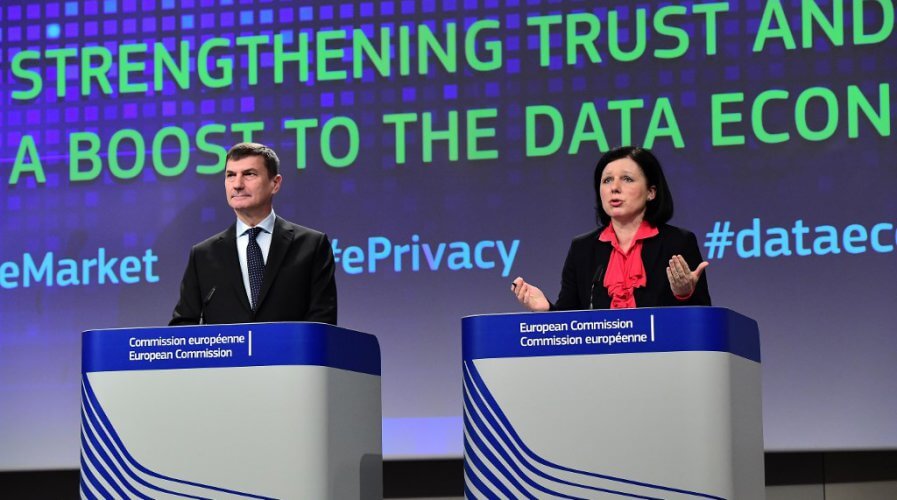
Data protection is critical for think tanks such as Roland Berger. Source: Photo by EMMANUEL DUNAND / AFP
Why think tanks like Roland Berger take data privacy seriously
THINK tanks such as McKinsey & Co, Bain & Company, and Roland Berger usually work with multinational clients, have intimate knowledge of their operations, and access data that keep their businesses competitive in the marketplace.
Long before data privacy became a global issue, think tanks learned the value and importance of protecting data.
In many ways, data privacy is a competitive advantage for think tanks.
Ahead of the ConnecTechAsia2019 summit in Singapore, Roland Berger Principal for Eastern Asia Laurent Doucet spoke to Tech Wire Asia about how firms like his think about data and privacy and why it’s important.
“As a consulting firm, trust and privacy are of utmost importance; and they have been key to success long before the digital age.”
Doucet believes that trust is the basis of any lasting relationship between clients and consultants and is what enables long-term engagements.
The definition of trust has changed in the past 20 years – the ones that have lost it are not the ones that can gain it back in times of Uber ratings and "Twitter truth". Roland Berger CEO @CEBouee shares his outlook on trust at the #BerlinGlobalForum @bmwfoundation pic.twitter.com/B0R2uHe6t5
— Roland Berger (@RolandBerger) November 24, 2017
As a result, Roland Berger places a great emphasis on data privacy. They’re aware of how easy it is to steal client data in the digital age, so the organization takes every precaution it can to prevent data breaches.
“Privacy is at the core of our contractual engagements; it is essential to guarantee our clients that the data they provide us with and let us work on is safe and in trustworthy hands.
“Every consultant joining our firm has very strict guidelines regarding client data in any format and in any situation.”
Doucet points out that in today’s age, with staff accessing data on the go, using enterprise apps and solutions on mobile devices via external networks, communication becomes a challenge while ensuring data security.
“This means each member of our staff must be aware of the incredible responsibility they have and the duty they share to protect our customers’ data.”
While failing to protect customer data might cause the think tank to lose customers, being a European entity, the company is also legally accountable to the European Commission for any failures.
“Roland Berger being of European origin and having kept a strong DNA, I think it is hard not to mention Europe’s GDPR when it comes to this topic of discussion.”
As a result, the company doesn’t simply rely on employees consciously making the right choices when it comes to protecting data.
Doucet reveals that the company has an intranet community dedicated to discussions on data protection – to show how seriously the company looks at Trust and Privacy (and its compliance with the laws).
“The intranet contains useful resources, such as GDPR Terms and Definitions, our Data Protection Company Policy, Training kits, a Report/Request center. These documents lay out the extent in which data privacy regulation is adopted internally.”
Further, for projects requiring the use of data analytics for clients, the company tries to maintain strict compliance with the practices and rules used by its clients in their respective geographies.
“For instance, if need be, we can work “on-premise” on client’s dedicated infrastructure,” explained Doucet.
From the interview, it’s clear that think tanks place a great deal of importance when working with client data. However, the world going digital, protecting data is more challenging.
Roland Berger’s Doucet was careful to address the issue and instead, highlighted the things that the organization does to ensure privacy and the care it takes to protect client data.
After all, making a conscious effort to prevent data theft is fundamental to defending the company against sophisticated cyberattackers in the digital world.
READ MORE
- Safer Automation: How Sophic and Firmus Succeeded in Malaysia with MDEC’s Support
- Privilege granted, not gained: Intelligent authorization for enhanced infrastructure productivity
- Low-Code produces the Proof-of-Possibilities
- New Wearables Enable Staff to Work Faster and Safer
- Experts weigh in on Oracle’s departure from adland






